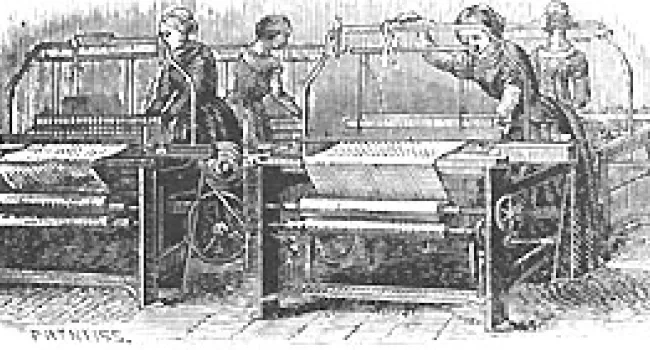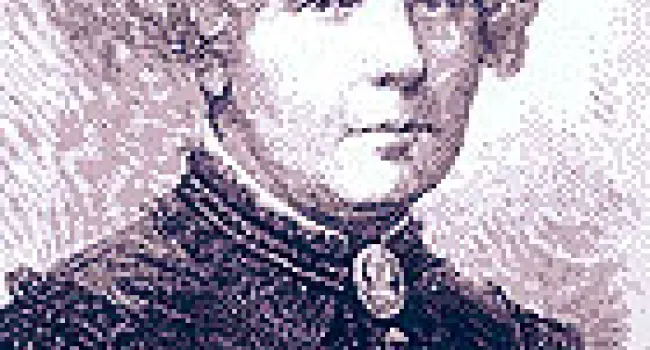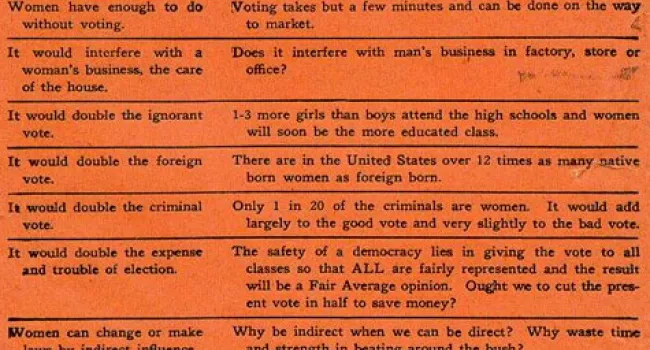
Susan was inspired by Elizabeth's work, particularly in suffrage, and became dedicated to gaining equal rights for women. Equal rights meant the right to vote, equal pay, and equal treatment for women under the law.
Susan and Elizabeth gathered signatures on a petition to grant women the right to vote and to have control over their property and earnings.
The Married Woman's Act of 1860 was a result of their efforts. The law granted women the ability to control their property and earnings, but did not provide the right to vote.
Susan made a public stand for suffrage by illegally voting in the presidential election of 1872. She was arrested and sentenced to pay a fine of $100, which she refused to pay.
Although she did not gain the right to vote, she made it quite obvious that women were struggling to attain suffrage. Susan's firm belief was that, "there never will be complete equality until women themselves help to make laws and elect lawmakers."
To Susan and other women's rights activists, suffrage was the greatest form of empowerment.
Photo courtesy: Library of Congress
Standards
- 5-4 The student will demonstrate an understanding of American economic challenges in the 1920s and 1930s and world conflict in the 1940s.
- USHC.2.CX Contextualize the perspectives on the role of the federal government in securing natural rights during the period 1830–1877.




